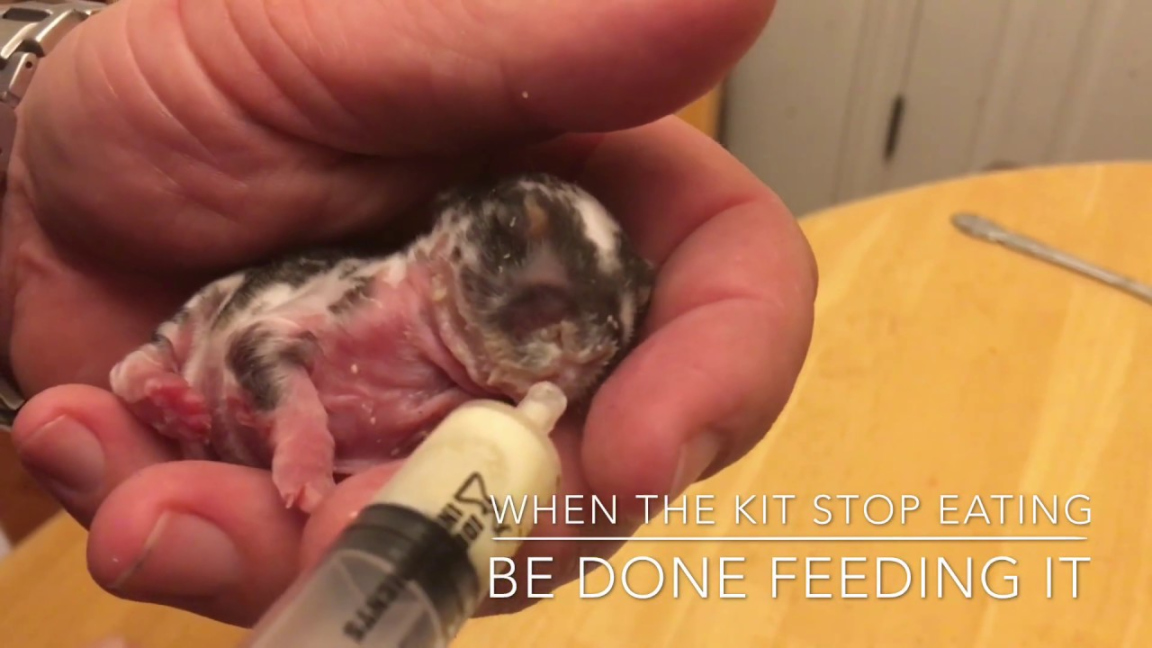What to Feed a Newborn Rabbit?
Raising a newborn rabbit can be a rewarding experience, but it’s important to know what to feed them to ensure their health and proper growth. While newborn rabbits primarily rely on their mother’s milk, there are certain situations where hand-feeding becomes necessary. This article will guide you on what to feed a newborn rabbit, providing essential nutrients and ensuring their well-being.

1. Mother’s Milk
The ideal food for a newborn rabbit is its mother’s milk, which provides all the necessary nutrients for their growth and development. Mother’s milk is rich in antibodies that help boost the rabbit’s immune system and protect it from diseases. It’s important to allow the baby rabbit to nurse from its mother for at least the first six to eight weeks of its life.
2. Commercial Milk Replacers
In cases where the mother rabbit is unable to nurse or the baby rabbit is orphaned, commercial milk replacers specifically designed for rabbits can be used. These milk replacers are available at pet stores or from a veterinarian. It is important to follow the instructions on the packaging for proper preparation and feeding.
Bullet List:
- Choose a milk replacer specifically formulated for rabbits.
- Follow the instructions on the packaging for preparation.
- Feed the milk replacer using a syringe or a small bottle with a nipple.
- Ensure the milk is at an appropriate temperature before feeding.
3. Introducing Solid Foods
As the newborn rabbit grows, it will gradually start to consume solid foods. This transition typically begins around three weeks of age. Introduce small amounts of fresh hay, high-quality rabbit pellets, and fresh vegetables. It’s important to provide a variety of vegetables to ensure a well-balanced diet. Some suitable vegetables for rabbits include carrots, leafy greens like kale and lettuce, and herbs like parsley and cilantro.
Numbered List:
- Start introducing solid foods around three weeks of age.
- Offer small amounts of fresh hay to encourage chewing and promote healthy digestion.
- Introduce high-quality rabbit pellets, following the recommended feeding guidelines.
- Gradually add fresh vegetables to their diet, ensuring a variety for a balanced nutrition.
4. Water
Providing access to fresh and clean water is crucial for the health of newborn rabbits. As they start consuming solid foods, it’s important to offer water alongside their meals. Use a shallow dish or a water bottle designed for rabbits, ensuring it is easily accessible for the baby rabbits. Regularly check that the water is clean and refill as needed.
Remember: Do not offer cow’s milk to newborn rabbits as it can cause digestive issues and lead to diarrhea.
Frequently Asked Questions (FAQs)
Can I feed newborn rabbits cow’s milk?
No, cow’s milk is not suitable for newborn rabbits as their digestive system is not designed to process it. Cow’s milk can cause digestive issues and lead to diarrhea in rabbits.
How often should I feed a newborn rabbit?
Newborn rabbits should be fed every 2-3 hours, including throughout the night. As they grow older and start consuming solid foods, the frequency of feeding can be gradually reduced.
What should I do if a newborn rabbit is not nursing from its mother?
If a newborn rabbit is not nursing from its mother, it may require hand-feeding with a milk replacer. Consult a veterinarian for guidance on proper hand-feeding techniques and suitable milk replacers.
When should I start introducing solid foods to a newborn rabbit?
Solid foods, such as fresh hay, rabbit pellets, and vegetables, can be gradually introduced around three weeks of age. Ensure the baby rabbit is also receiving its mother’s milk or a suitable milk replacer during this transition period.
By following these guidelines, you can provide proper nutrition and care for a newborn rabbit. Remember to consult a veterinarian for any specific concerns or questions regarding the health and feeding of your rabbit. With the right diet and care, your newborn rabbit will thrive and grow into a healthy adult.
Related Articles…
Copyright Notice:
Images displayed on this website are not our property, but are procured from the internet. If you hold copyrights to any image and wish for its removal, please get in touch with us.